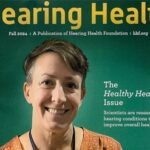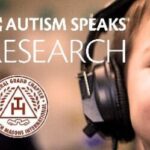May 20, 2019
Autism Speaks Research
Autism Speaks, with the support of a Royal Arch Research Assistance grant, is funding two pilot studies to understand central auditory processing disorder and sound-processing difficulties.
Royal Arch Masons International ranks among the leading charities helping children with central auditory processing disorder. The disorder can lead to difficulty using, understanding and remembering information conveyed through speech and other sounds.
“The Royal Arch Masons are generously supporting this work to help understand a major communication and learning challenge that affects many people with autism,” said Autism Speaks Chief Science Officer Thomas Frazier. “We are grateful for this longstanding partnership as we face these challenges by working toward solutions that will improve lives.”
Each one-year pilot study will be funded at $60,000.
Two groundbreaking research projects
Dr. Moore
In this pilot study, neuroscientist David Moore will use brain imaging to study the connections between speech and other brain areas in children with auditory processing difficulties. Dr. Moore is the director of the Communication Sciences Research Center at Cincinnati Children’s Hospital Medical Center. Dr. Moore also is a professor at the University of Manchester and Hearing Health, Minimising Risk Programme Associate Lead for the NIHR Manchester Biomedical Research Centre.
Despite reporting auditory processing difficulties, most children with these difficulties who are then tested by audiologists do not have underlying hearing problems. In earlier work, this research team instead found brain differences in areas relevant to speech, but not other types of sounds, in these children using MRI brain scans.
Our goal: To help identify brain connections related to speech difficulties and lead to new to treatments that ease symptoms of auditory processing disorder and autism.
This pilot study will enroll 20 children with listening difficulties and autism ages 8 to 15. Moore’s team will compare them to data from two other groups of children, one with listening difficulties but not autism, and another group of typically developing children. Knowledge from this study will identify differences in speech-related brain connections in individuals with autism and listening difficulties so they can be appropriately treated. Learn more about this study.
Dr. Demopoulos
Neuropsychologist Carly Demopoulos will conduct a pilot study to look for underlying brain and auditory barriers that lead to speech problems in children with autism spectrum disorder (ASD). Dr. Demopoulos is an assistant professor of psychiatry at the University of California San Francisco.
Some children with ASD lack the ability to accurately produce speech. The ability to process sounds, including the sound of hearing oneself speak, is one way to correct speech errors while speaking using auditory feedback. Children with difficulty processing sounds, a common feature of children with ASD, do not have this tool to rely on, leading to more severe speech deficits.
Our goal: To identify causes of speech impairment in children with autism to guide new treatments to ease symptoms of auditory processing disorder and autism.
This study will enroll 20 children with autism and impaired speech and compare them to a group of 20 children with autism but not speech impairments. Researchers will manipulate auditory feedback to isolate and identify the underlying process that is impairing speech. The study will identify whether speech problems in autism are due to the process of speech production or to auditory processing. Learn more about this study.
A longstanding partnership to improve lives
In 2011, Autism Speaks and the Royal Arch Masons forged a strong relationship that has included $1 million in pledged funding. In 2016, Autism Speaks announced the first Royal Arch Masons Fellowship. In addition to supporting research, Royal Arch Mason funding helps Autism Speaks teach health care providers and caregivers about auditory processing disorder in autism and the importance of evaluation when children show related challenges.
“The General Grand Chapter Royal Arch Masons and our members are proud to be partnering in a major effort to make a real difference for the benefit of all mankind in dealing with central auditory processing disorders through our philanthropy Royal Arch Research Assistance,” the group said in a statement.



